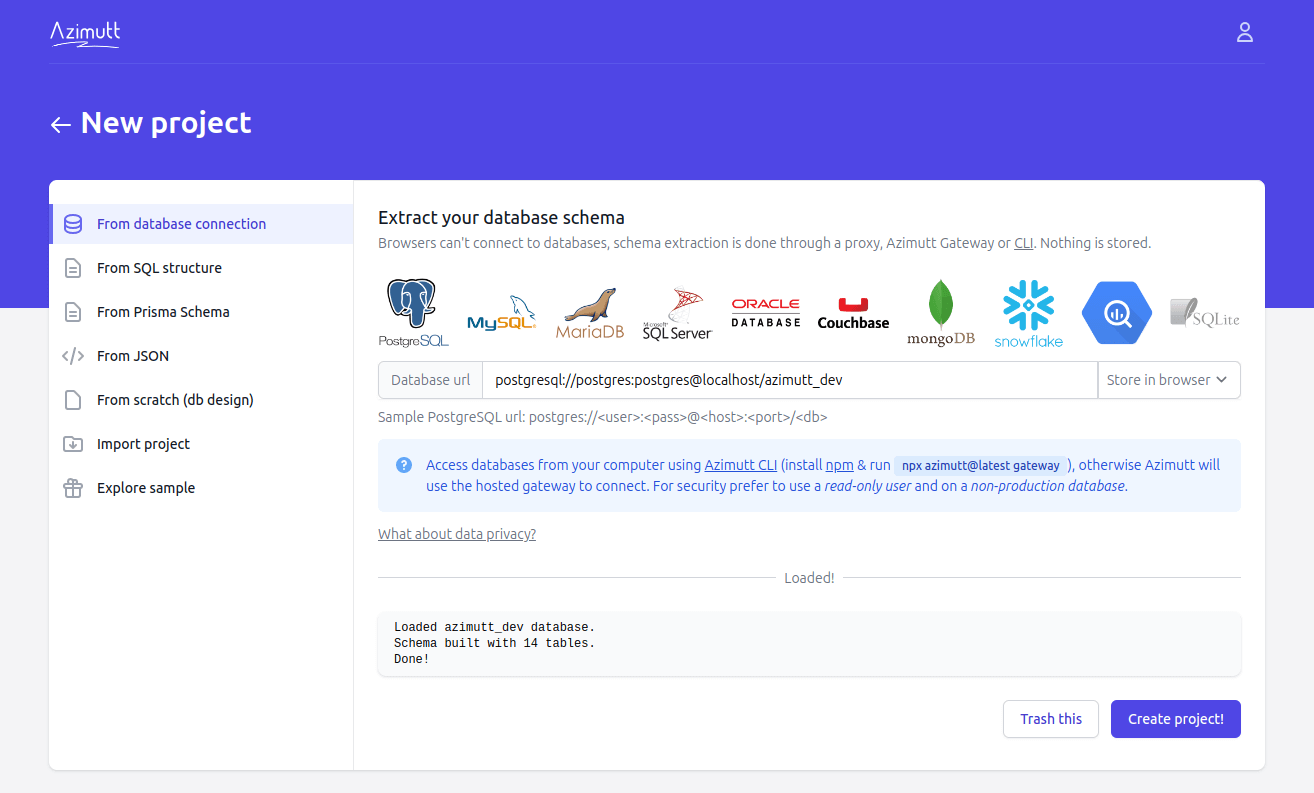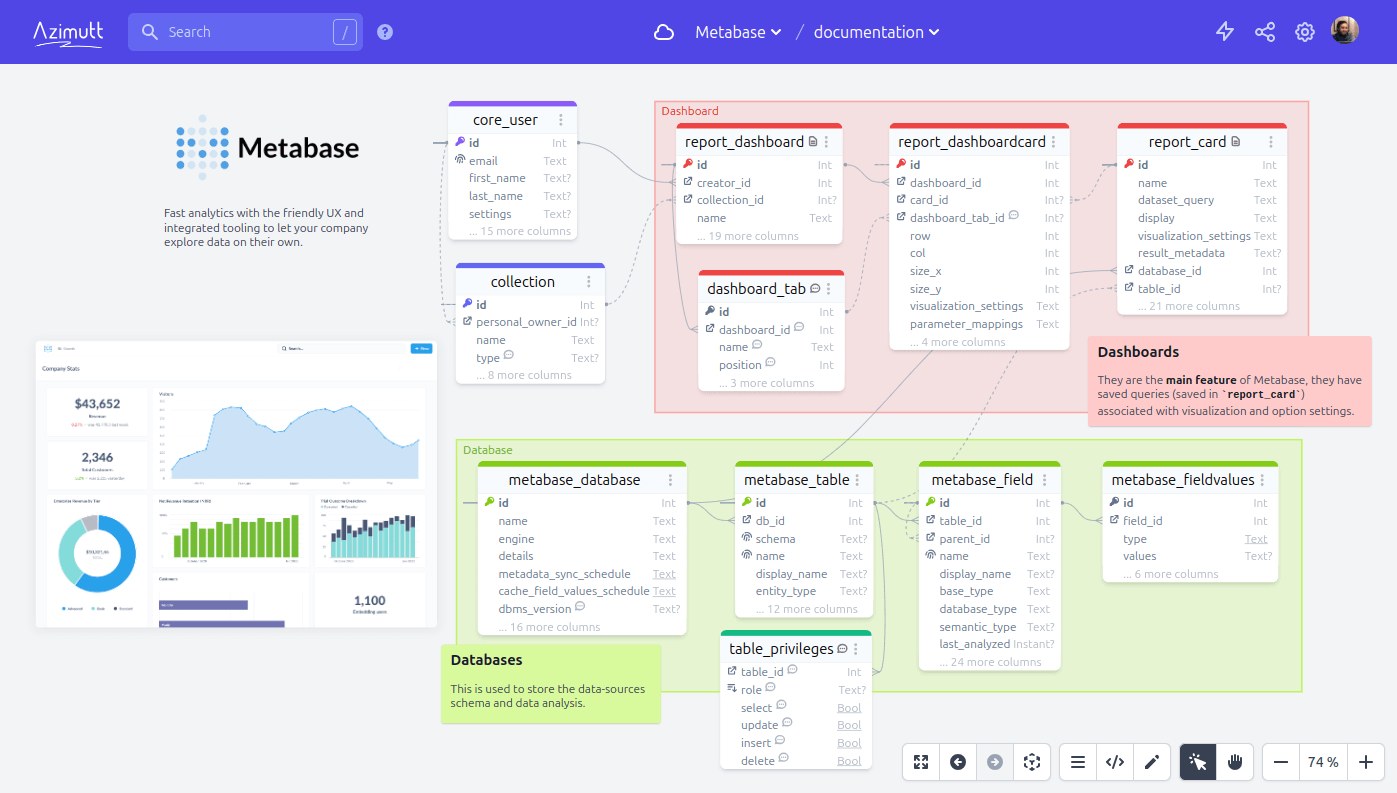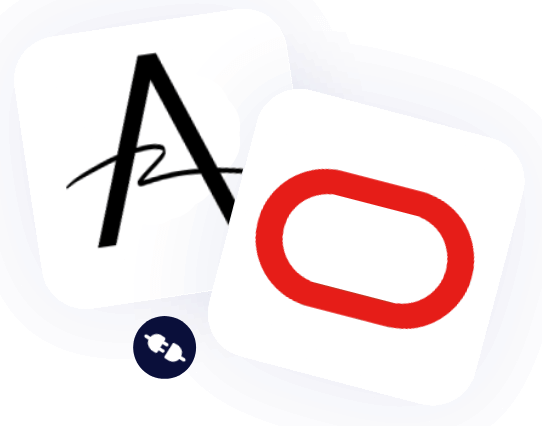Tables Relations Types Statistics Query history Triggers Procedures Query data
Oracle is a powerful, enterprise-grade relational database designed for handling mission-critical applications and large-scale data. Known for its exceptional performance, scalability, and advanced security, it has features like real-time data processing and multi-model data support, providing businesses a robust solution to efficiently manage and analyze large volumes of data while ensuring security and compliance.
Azimutt is making the first database explorer targeted for real world databases: large, heterogeneous and messy 😅 If you ever looked for an Entity-Relationship diagram tool (ERD) or drew your database schema on a sheet or whiteboard, Azimutt is made for you. But it goes well beyond that with database documentation, cross-database data exploration and even linter and monitoring of your database.
The Oracle connector
is available on Azimutt GitHub. Feel free to have a look and even suggest improvements.
The heart of its behavior is the getSchema in
src/oracle.ts file.
It gets the Oracle schema.
Not only it gets the database schema, but it also infers:
- Polymorphic relations
- JSON column schema
How to use it #
Using the Oracle connector in Azimutt is really easy:
- Launch the Gateway, if needed (for the local one use
npx azimutt@latest gateway) - Create a new project or add a source to an existing one
- Fill your Oracle database url (ex:
oracle:thin:user/pass@localhost:1521/FREE)

Here are more details about how Azimutt secure your data and especially your database url.
If you miss an Oracle database, you can launch a free one with Docker:
docker run --name oracle_sample -p 1521:1521 -e ORACLE_PWD=oracle container-registry.oracle.com/database/free:23.4.0.0-liteYou can use this sample script to populate it.
Here is what you can do with Azimutt:

